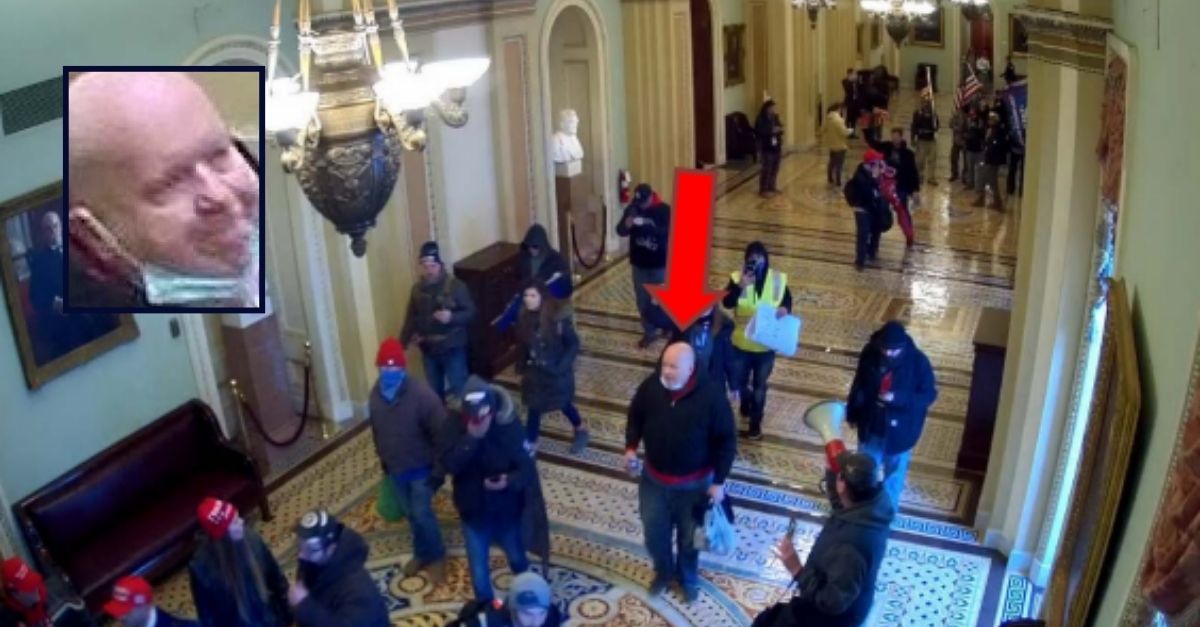
James Little (inset, below red arrow) during Jan. 6 (DOJ).
A Jan. 6 rioter lost his court battle after he claimed a judge violated double jeopardy when he sentenced him to more prison time after he won an appeal that threw out his original sentence.
Senior U.S. District Judge Royce Lamberth sentenced James Little to 60 days in jail and three months probation in a so-called “split sentence” after the defendant pleaded guilty to a misdemeanor disorderly conduct charge. Little appealed, claiming the charge for which he was convicted did not allow for a split sentence. The U.S. Circuit Court for the District of Columbia ruled in his favor in August 2023.
More coverage from Law&Crime: Federal judge who agreed to scrap Trump’s election fraud case allows Jan. 6 rioter to attend inauguration as other defendants wait for green light
Lamberth, a Ronald Reagan appointee, subsequently resentenced Little to 150 days imprisonment with credit for time served. Little appealed that sentence, claiming Lamberth had violated the Double Jeopardy Clause that states a person cannot be punished twice for the same crime. But the DC Circuit rejected Little’s argument, saying he was not punished twice but merely resentenced after the original sentence was thrown out.
“Little argues that his new sentence violates the Double Jeopardy Clause because the district court imposed additional punishment after Little had already completed the term of incarceration that was part of his illegal split sentence,” Joe Biden appointee U.S. Circuit Judge Florence Pan wrote. “He also contends that he had a legitimate expectation of finality in his original sentence. Both of Little’s arguments are unpersuasive.”
Double Jeopardy does not apply when a person is being resentenced, the court ruled.
“The court may even ‘impose upon reconviction a longer prison sentence than the defendant originally received,’ so long as the years already spent in prison are ‘returned’ to the defendant ‘by subtracting them from whatever new sentence is imposed,’” Pan wrote.
Little’s lawyers argued that he couldn’t be punished again because he had already served out his original 60-day jail sentence and was 30 days into the three-month probation term when the appeals court ruling came down. The court called Little’s arguments “unconvincing.”







